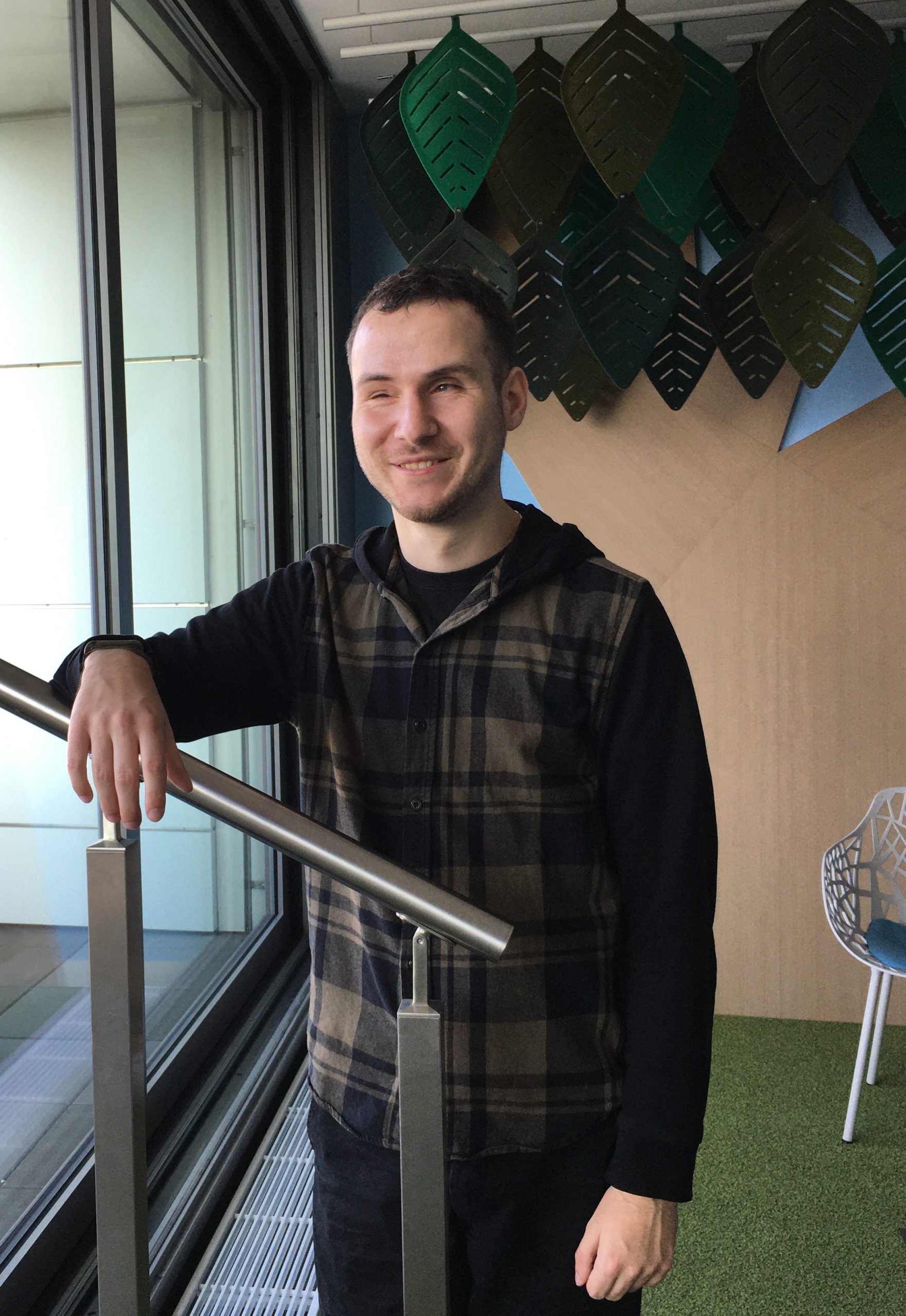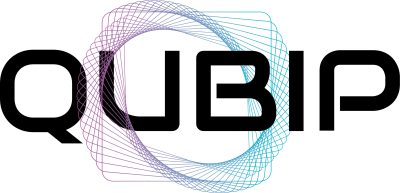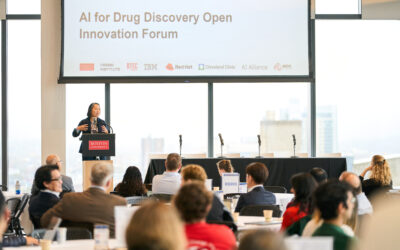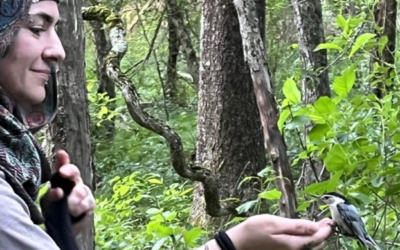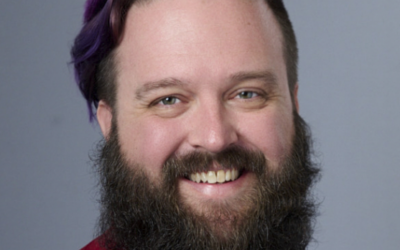Vojta Polásek graduated with honors at Masaryk University Brno, receiving the Dean’s award for his Bachelor and Diploma theses. His diploma thesis was nominated by his faculty to prestigious Czech and Slovak IT SPY competition evaluating IT diploma theses and was among the 8 best finalists. Recently, Vojta joined Red Hat and kick-started his career in the Security Compliance team. While Vojta’s record is impressive for any young engineer, it’s made all the more remarkable by the fact that he was born visually impaired and lost his sight entirely during his teenage years. We talked to Vojta about his motivation, his path through Masaryk University, and the challenges of operating a touch screen coffee machine when you can’t see it.
[RHRB]: Let’s start with a warm-up question: When you were a child, what did you want to be when you grow up?
[Vojta]: An astronaut, of course! (chuckles). Once upon a time, when I was about 5 years old, my father brought home our first computer and from that moment I knew that I’ll devote my career to computers and I haven’t stopped hanging around them ever since. Besides, I have been playing the piano for a long time. During my studies in high school I was also bouncing around ideas to study psychology but eventually computers won. However, I wasn’t sure which specific area I want to focus on so I started experimenting with hacking and that was the moment I decided to go down the ‘security road’.
[RHRB]: So how did you actually get to the programming?
[Vojta]: The first thing I did was my own website. There wasn’t such a thing as WordPress or other content management systems available back then so I started with HTML. The problem is that creating a website goes hand in hand with web design, which was obviously something I was not able to deal with so I started with programming from simple Timer to games for visually impaired people (check out GitHub). When I started university, there wasn’t much time left for my own initiatives and experiments as I had to devote most of the time to various projects which were part of my studies.
[RHRB]: At which university did you study and how was it for you? How did your student life differ from other students?
[Vojta]: I studied at the Faculty of Informatics, Masaryk University. As far as my disability is concerned, Masaryk University belongs to the absolute top for students with special needs, especially thanks to the Teiresias support center, Their goal is to provide maximum accessibility to all accredited degree programs at the university for students with various types of disabilities. Thanks to them I could study the same program as other ‘normal’ students which is amazing. Teiresias has its own building and classrooms with their own equipment.
My studies were different primarily due to length. A good example was math: known as one of the most difficult subjects at FI and it usually consists of seminars and lectures including writing on the whiteboard which is obviously something I am not able to do. So I got an individual study plan, individual lector, modified materials in electronic form and extra lessons. Consequently, what takes ‘normal students’ one semester, I studied for two but in the end, I was able to pass the exam like anyone else.
[RHRB]: Was there any subject which you simply couldn’t study?
[Vojta]: Not really, but if I chose for instance graphic design that would be obviously… nonsense. Anyway, most of the time it‘s more about the will, attitude, and negotiation.
A great example is the Cisco networking course I applied for. The course is optional, but very interesting and not many students apply for it. I was told this course is not really suitable for me but I didn’t get discouraged easily: I asked for reasons why not. And then? We found a way eventually!
However, the only serious problem I experienced was the lack of lecturers for individual studies.
[RHRB]: That’s amazing! Let‘s stick with your student life for a while: We heard that you received Dean‘s award for both the bachelor thesis and also for a diploma thesis. That‘s pretty impressive! Can you briefly introduce us to the topic of your diploma thesis?
[Vojta]: The Deans award? To be honest, that was a surprise even for me. My advisor Milan Brož proposed a nomination for the Dean’s award during the defense of the diploma thesis.
In simple words, I was dealing with key derivation functions that transform a password into a cryptographic key because ordinary passwords are not always suitable for encryption software. I was analyzing a relatively new function called Argon2 which was designed to make to the process of cracking harder and slower because password cracking has evolved and gotten way faster thanks to the usage of graphic cards and specialized HW. Simply put, this function should force hackers to be able to crack passwords only as fast as common users so they don’t have any ‘advantage’ over them.
My job was basically to simulate an attack and compare Argon2 with PBKDF2. The attack was devised through CPUs and GPUs using high-performance hardware provided by MetaCentrum VO and I was testing how long it takes to crack the function. The result of this test was a price model for an attacker using either physical hardware or on-demand allocation of computing resources in the cloud. It turned out that it can easily reach millions or even billions of dollars.
[RHRB]: What was the most interesting finding from your thesis?
[Vojta]: Well, it was quite intriguing that from a long-term perspective it does not really pay to rent space in the cloud in comparison with buying computers directly for hackers.
[RHRB]: You have also mentioned your advisor Milan Brož who is working for Red Hat and is a kind of ambassador for MUNI. Can you tell us about him in the role of adviser? How was it?
[Vojta]: Milan’s approach was fantastic. He was absolutely honest with me. He was like: ‘It’s your thesis, not mine.’ or ‘It’s you who will defend it, not me.’ In my opinion, an advisor should be someone who is providing guidance and advice rather than pushing and urging students. Cooperation with him was based on reciprocity: as long as I was proactive Milan behave the same way and he was very open to my ideas and initiatives. I am aware that a large part of the success of the thesis belongs to him. It was honestly pleasure being led by Milan.
[RHRB]: How did you get to him?
[Vojta]: By contacting Red Hat directly through the website which listed topics for theses and contacts so I wrote them and coincidentally I got a reply from one of my disabled classmates who referred me to Milan. I knew Milan already from lectures and he seemed like an interesting person to me. So I reached out to him personally, talked with him and presented my idea. I originally wanted to focus on security awareness but it didn‘t really fit into the Red Hat concept. Milan described the work he was doing, I found it interesting and this way we came to a compromise.
[RHRB]: Does it mean that you got to Red Hat thanks to Milan?
[Vojta]: Not really. When I approached him with a request for advising my thesis I also asked if there is any potential internship possibility or even job offer. At that time it was a distant future. So after my graduation I applied for a job like many others: I sent the CV.
[RHRB]: Where did you learn about Red Hat for the first time?
[Vojta]: I knew more or less that ‘something like Red Hat’ and Linux does exist already when I was in high school but that was basically all. At university, you start getting to know people from Red Hat, learn about the company: the specific way they do business, open source and so on. What I found interesting about Red Hat is the ‘open approach’ and it‘s not a typical corporation where you have to wear a suit, sit in a cubicle and code all day long. Plus, many of my disabled classmates had already been working there.
[RHRB]: What are you currently doing in Red Hat? What is your role?
[Vojta]: Roles in our team are not fixed so it‘s hard to predict my future role. Currently I am part of Security compliance team working on OpenSCAP which is an upstream tool for maintaining security compliance for enterprise systems and I’m responsible for creating content for this tool. This role involves an interesting mix between programming and scripting and also a little bit of system administration which I really enjoy.
[RHRB]: How was your start there?
[Vojta]: Luckily, I got into this amazing team with a great peer who spends a lot of time with me. He showed me the building, where to find meeting rooms, kitchen and everything else. Nevertheless, first weeks were difficult. I had to find out which systems I am able to use and which not. I was overwhelmed by information, we had to set up all devices and systems, prepare my working desk etc. Even though it was tough, I enjoyed it. The team is amazing, people talk to me straight without pretending anything.
[RHRB]: Was there any obstacle you had to face at work?
[Vojta]: Coffee machines are tricky! These modern devices have touch screens but that‘s not that big deal indeed.
It‘s not that hard to find the way in a building. One just has to learn where meeting rooms are and then it’s easy. There are only tiny obstacles like technical issues for example with some software, like Jira. I have mentioned already during my interview that problems like this might occur. It‘s a problem though but luckily I don’t need to use it that much. So overall it‘s good.
>>How to write a thesis related to Red Hat topic? Check out the list of available topics
